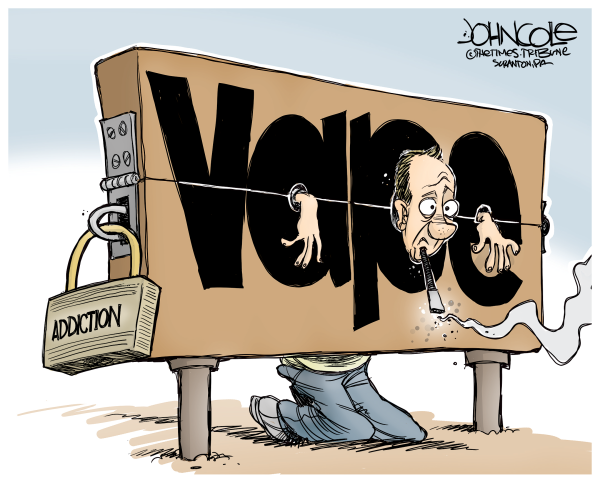
The human capacity for processing information is limited. People running for office who recognize this and adapt their campaign messages accordingly usually do better than those who don’t.
It’s not that the voters are dumb, far from it. In the years since the end of World War II, the federal government has grown in both size and scope to a scale most of the nation’s founding generation would not have believed possible.
The regulatory impulse has led to a permanent and unaccountable meta-government at the bureaucratic level that often ignores the general welfare and the sentiments of the people in the name of protecting them.
Vivek Ramaswamy, a biotech entrepreneur currently seeking the 2024 GOP presidential nomination, is making the need to prune the permanent government back a centerpiece of his campaign. An Ohio-born first-generation American, he’s out on the hustings like a high-tech Paul Revere, calling for us to address the excesses of the administrative state.
It’s a welcome contribution to the national debate. Federal regulators have been out of control for some time, writing rules that have the force of law free of the accountability that comes through the democratic process.
There is, as Ramaswamy acknowledges, a veritable alphabet soup of agencies known by their initials that hold the power of life and death over essential sectors of the economy and, increasingly, over us.
The one that may be most urgently in need of reform is the U.S. Food and Drug Administration. Its focus is literally on things that can keep us alive and things that can kill us. Unfortunately, it continually errs in both directions.
During the recent public health crisis that was COVID-19, it was – until President Donald Trump intervened with Operation Warp Speed and other methods of cutting red tape – an impediment to the development of both rapid testing and a cure.
Since the end of the pandemic, the agency has been curiously silent about the long-term effects of the vaccines many people were ordered to receive either by government mandate or at the cost of losing their job if they refused. Had it been more on the ball, it might have been able to help forestall the ongoing online panic running through social media that the cure did more damage than the disease.
That’s only part of the problem. The FDA’s decades-long war against tobacco – which it decided several years ago included a mandate to regulate vaping devices – is failing.
The number of different devices available in the United States has tripled during the Biden years, most of them coming from China. That’s in stark contrast to regulators’ own figures, which tout the rejection of some 99% of company requests to sell new e-cigarettes while authorizing only a few meant for adult smokers, according to the Associated Press.
Rather than focus on that, the FDA is ramping up efforts to increase its ban on tobacco. As part of that, the agency is seriously considering a ban on the sale of menthol cigarettes, which have been around since the 1920s and became widespread in the 1950s.
One reason is the number of young people smoking is at an all-time low. An FDA ban on menthol would only really affect adults, who, we generally concede, should have the freedom to choose.
Adults may prefer flavored vapes and tobacco, especially if they’ve chosen vaping as an alternative. Young people also prefer flavors, making them a safety hazard in the government’s mind. As such, they were driven from the U.S. market by the FDA – except for what’s coming from China. It apparently can’t do anything about them – or doesn’t want to expend the resources and political capital necessary to try.
The pivot to menthol from flavored vapes might be what you’d see the private sector do. Hit a wall, move to something else. But we want something else from government. We don’t want entrepreneurial regulators looking for opportunities. We want them to follow instructions given to them by Congress or the President, all of whom are accountable to the people.
We’ve been down this road before. When the Volstead Act passed, making the production of alcohol illegal (except for certain specific and highly regulated purposes), we got a black market and bloodshed. When flavored vapes were effectively banned, we got a flood of Chinese imports.
Now the FDA thinks it can get rid of menthol cigarettes. Who does it think it’s kidding?
Peter Roff is former U.S. News and World Report contributing editor and UPI senior political writer now affiliated with several DC-based public policy organizations. He writes for numerous publications and appears regularly on international television talking about U.S. politics. You can reach him at RoffColumns@gmail.com and follow him on Twitter @TheRoffDraft.
Comments are no longer available on this story